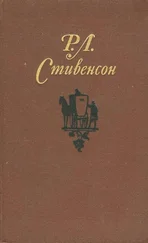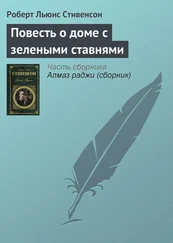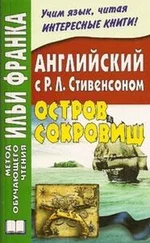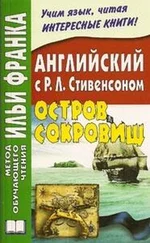Роберт Стивенсон - Memoir of Fleeming Jenkin
Здесь есть возможность читать онлайн «Роберт Стивенсон - Memoir of Fleeming Jenkin» — ознакомительный отрывок электронной книги совершенно бесплатно, а после прочтения отрывка купить полную версию. В некоторых случаях можно слушать аудио, скачать через торрент в формате fb2 и присутствует краткое содержание. Жанр: literature_19, foreign_antique, foreign_prose, Биографии и Мемуары, на английском языке. Описание произведения, (предисловие) а так же отзывы посетителей доступны на портале библиотеки ЛибКат.
- Название:Memoir of Fleeming Jenkin
- Автор:
- Жанр:
- Год:неизвестен
- ISBN:нет данных
- Рейтинг книги:3 / 5. Голосов: 1
-
Избранное:Добавить в избранное
- Отзывы:
-
Ваша оценка:
- 60
- 1
- 2
- 3
- 4
- 5
Memoir of Fleeming Jenkin: краткое содержание, описание и аннотация
Предлагаем к чтению аннотацию, описание, краткое содержание или предисловие (зависит от того, что написал сам автор книги «Memoir of Fleeming Jenkin»). Если вы не нашли необходимую информацию о книге — напишите в комментариях, мы постараемся отыскать её.
Memoir of Fleeming Jenkin — читать онлайн ознакомительный отрывок
Ниже представлен текст книги, разбитый по страницам. Система сохранения места последней прочитанной страницы, позволяет с удобством читать онлайн бесплатно книгу «Memoir of Fleeming Jenkin», без необходимости каждый раз заново искать на чём Вы остановились. Поставьте закладку, и сможете в любой момент перейти на страницу, на которой закончили чтение.
Интервал:
Закладка:
‘About 12 o’clock a servant came for a boy who lived near me, [and] Deluc thought it best to send me with him. We heard a good deal of firing near, but did not come across any of the parties. As we approached the railway, the barricades were no longer formed of palings, planks, or stones; but they had got all the omnibuses as they passed, sent the horses and passengers about their business, and turned them over. A double row of overturned coaches made a capital barricade, with a few paving stones.
‘When I got home I found to my astonishment that in our fighting quarter it was much quieter. Mamma had just been out seeing the troops in the Place de la Concorde, when suddenly the Municipal Guard, now fairly exasperated, prevented the National Guard from proceeding, and fired at them; the National Guard had come with their muskets not loaded, but at length returned the fire. Mamma saw the National Guard fire. The Municipal Guard were round the corner. She was delighted for she saw no person killed, though many of the Municipals were…
‘I immediately went out with my papa (mamma had just come back with him) and went to the Place de la Concorde. There was an enormous quantity of troops in the Place. Suddenly the gates of the gardens of the Tuileries opened: we rushed forward, out gallopped an enormous number of cuirassiers, in the middle of which were a couple of low carriages, said first to contain the Count de Paris and the Duchess of Orleans, but afterwards they said it was the King and Queen; and then I heard he had abdicated. I returned and gave the news.
‘Went out again up the Boulevards. The house of the Minister of Foreign Affairs was filled with people and “ Hôtel du Peuple ” written on it; the Boulevards were barricaded with fine old trees that were cut down and stretched all across the road. We went through a great many little streets, all strongly barricaded, and sentinels of the people at the principal of them. The streets were very unquiet, filled with armed men and women, for the troops had followed the ex-King to Neuilly and left Paris in the power of the people. We met the captain of the Third Legion of the National Guard (who had principally protected the people), badly wounded by a Municipal Guard, stretched on a litter. He was in possession of his senses. He was surrounded by a troop of men crying “Our brave captain – we have him yet – he’s not dead! Vive la Réforme !” This cry was responded to by all, and every one saluted him as he passed. I do not know if he was mortally wounded. That Third Legion has behaved splendidly.
‘I then returned, and shortly afterwards went out again to the garden of the Tuileries. They were given up to the people and the palace was being sacked. The people were firing blank cartridges to testify their joy, and they had a cannon on the top of the palace. It was a sight to see a palace sacked and armed vagabonds firing out of the windows, and throwing shirts, papers, and dresses of all kinds out of the windows. They are not rogues, these French; they are not stealing, burning, or doing much harm. In the Tuileries they have dressed up some of the statues, broken some, and stolen nothing but queer dresses. I say, Frank, you must not hate the French; hate the Germans if you like. The French laugh at us a little, and call out Goddam in the streets; but to-day, in civil war, when they might have put a bullet through our heads, I never was insulted once.
‘At present we have a provisional Government, consisting of Odion [ sic ] Barrot, Lamartine, Marast, and some others; among them a common workman, but very intelligent. This is a triumph of liberty – rather!
‘Now then, Frank, what do you think of it? I in a revolution and out all day. Just think, what fun! So it was at first, till I was fired at yesterday; but to-day I was not frightened, but it turned me sick at heart, I don’t know why. There has been no great bloodshed, [though] I certainly have seen men’s blood several times. But there’s something shocking to see a whole armed populace, though not furious, for not one single shop has been broken open, except the gunsmiths’ shops, and most of the arms will probably be taken back again. For the French have no cupidity in their nature; they don’t like to steal – it is not in their nature. I shall send this letter in a day or two, when I am sure the post will go again. I know I have been a long time writing, but I hope you will find the matter of this letter interesting, as coming from a person resident on the spot; though probably you don’t take much interest in the French, but I can think, write, and speak on no other subject.
‘Feb. 25.‘There is no more fighting, the people have conquered; but the barricades are still kept up, and the people are in arms, more than ever fearing some new act of treachery on the part of the ex-King. The fight where I was was the principal cause of the Revolution. I was in little danger from the shot, for there was an immense crowd in front of me, though quite within gunshot. [By another letter, a hundred yards from the troops.] I wished I had stopped there.
‘The Paris streets are filled with the most extraordinary crowds of men, women and children, ladies and gentlemen. Every person joyful. The bands of armed men are perfectly polite. Mamma and aunt to-day walked through armed crowds alone, that were firing blank cartridges in all directions. Every person made way with the greatest politeness, and one common man with a blouse, coming by accident against her immediately stopped to beg her pardon in the politest manner. There are few drunken men. The Tuileries is still being run over by the people; they only broke two things, a bust of Louis Philippe and one of Marshal Bugeaud, who fired on the people…
‘I have been out all day again to-day, and precious tired I am. The Republican party seem the strongest, and are going about with red ribbons in their button-holes…
‘The title of “Mister” is abandoned; they say nothing but “Citizen,” and the people are shaking hands amazingly. They have got to the top of the public monuments, and, mingling with bronze or stone statues, five or six make a sort of tableau vivant , the top man holding up the red flag of the Republic; and right well they do it, and very picturesque they look. I think I shall put this letter in the post to-morrow as we got a letter to-night.
(On Envelope.)‘M. Lamartine has now by his eloquence conquered the whole armed crowd of citizens threatening to kill him if he did not immediately proclaim the Republic and red flag. He said he could not yield to the citizens of Paris alone, that the whole country must be consulted; that he chose the tricolour, for it had followed and accompanied the triumphs of France all over the world, and that the red flag had only been dipped in the blood of the citizens. For sixty hours he has been quieting the people: he is at the head of everything. Don’t be prejudiced, Frank, by what you see in the papers. The French have acted nobly, splendidly; there has been no brutality, plundering, or stealing… I did not like the French before; but in this respect they are the finest people in the world. I am so glad to have been here.’
And there one could wish to stop with this apotheosis of liberty and order read with the generous enthusiasm of a boy; but as the reader knows, it was but the first act of the piece. The letters, vivid as they are, written as they were by a hand trembling with fear and excitement, yet do injustice, in their boyishness of tone, to the profound effect produced. At the sound of these songs and shot of cannon, the boy’s mind awoke. He dated his own appreciation of the art of acting from the day when he saw and heard Rachel recite the ‘ Marseillaise ’ at the Français, the tricolour in her arms. What is still more strange, he had been up to then invincibly indifferent to music, insomuch that he could not distinguish ‘God save the Queen’ from ‘Bonnie Dundee’; and now, to the chanting of the mob, he amazed his family by learning and singing ‘ Mourir pour la Patrie .’ But the letters, though they prepare the mind for no such revolution in the boy’s tastes and feelings, are yet full of entertaining traits. Let the reader note Fleeming’s eagerness to influence his friend Frank, an incipient Tory (no less) as further history displayed; his unconscious indifference to his father and devotion to his mother, betrayed in so many significant expressions and omissions; the sense of dignity of this diminutive ‘person resident on the spot,’ who was so happy as to escape insult; and the strange picture of the household – father, mother, son, and even poor Aunt Anna – all day in the streets in the thick of this rough business, and the boy packed off alone to school in a distant quarter on the very morrow of the massacre.
Читать дальшеИнтервал:
Закладка:
Похожие книги на «Memoir of Fleeming Jenkin»
Представляем Вашему вниманию похожие книги на «Memoir of Fleeming Jenkin» списком для выбора. Мы отобрали схожую по названию и смыслу литературу в надежде предоставить читателям больше вариантов отыскать новые, интересные, ещё непрочитанные произведения.
Обсуждение, отзывы о книге «Memoir of Fleeming Jenkin» и просто собственные мнения читателей. Оставьте ваши комментарии, напишите, что Вы думаете о произведении, его смысле или главных героях. Укажите что конкретно понравилось, а что нет, и почему Вы так считаете.







